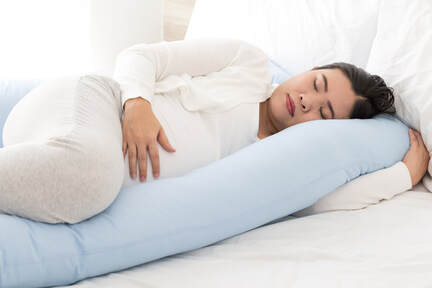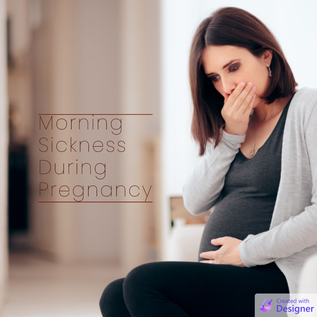|
How can you stop waking up in the middle of the night with hip or lower back pain during pregnancy?
Are you waking up in the middle of the night with sore hips or lower back? 🤰💤 This is because the ligaments that hold the uterus have to work harder as it grows, causing strain on the ligaments that run from the back of the uterus to the sacrum or lower back, and that support the front of the uterus in the pelvis. This can result in lower back pain and hip pain cursing you to wake up and need to turn over several times a night.. 🛌🤕 The good news is that using pregnancy pillows can help alleviate these symptoms and provide much-needed support to the body. Full-body pillows vs. smaller pillows: which one is right for you? There are two types of pregnancy pillows - full-body pillows and smaller pillows. Full-body pillows are designed to support the entire body and come in various shapes, including U-shaped and C-shaped pillows. Or you could choose to use several smaller pillows instead to support specific areas of the body, such as the hips, back, or belly. How to use smaller pillows to support specific areas of the body If you choose to use smaller pillows, you'll want one between your legs to support the upper hip, one to hug with your upper arm, and a smaller pillow or wedge for under your belly. This helps to keep the weight of the uterus evenly distributed and reduces the strain on your ligaments. 🛌💕 The benefits of hugging a pillow while pregnant Using a pillow to hug keeps the shoulder more open and reduces shoulder pain and swelling in the hands. My hips hurt when I sleep! A little wedge pillow for under the belly gives the uterus a little lift, which takes some of the strain away from your lower back. That in turn helps your upper hip from pulling forward. It's incredible how much difference such a tiny pillow can make! 😴👍 So, what pillows do you use? Share your pillow hacks with us in the comments below!👇
0 Comments
Are you experiencing morning sickness? How about afternoon / evening / all day sickness? You are absolutely not alone. Many people experience this in the first trimester, and the good news is that for most, it will go away by the beginning of the second trimester.
First off, let's talk symptoms. Nausea, vomiting, fatigue, and sensitivity to smells can all be part of the package deal. Foods you used to enjoy may find you running for the bathroom. But don't worry if you're not experiencing all of these symptoms – each pregnancy is unique, and what you feel is normal for you. So, what causes morning sickness? Hormones, hormones, hormones! Yep, those pesky hormones are to blame for making you feel like you've just set sail on the Titanic. Let's get down to the nitty-gritty – how can you manage morning sickness? The key is to listen to your body and try out different remedies until you find what works for you. Here are some tips to get you started:
And finally, this one may surprise you. Sniffing on an antiseptic wipe (like the kind used for first aid or on an airplane), has been shown to help with nausea. In fact, nurses may offer you one to smell if you're feeling nauseous in labor. So, there you have it, just remember to take it one day at a time and don't be afraid to try out new remedies and to talk to your doctor or midwife if things don't improve. |
AuthorEmma is a childbirth educator, prenatal birth and postpartum massage therapist, doula and overall pregnancy and childbirth junkie living and working in Seattle WA. She's British too which is where the tea bit come from. In England, if you want to have a chat with your friend about anything really, someone puts the kettle on for a nice cup of tea. It doesn't matter what the topic is, a nice cup of tea relaxes everyone, makes the conversation flow easier and generally makes everyone feel good. So you're invited to brew a cup of your favorite herbal tea, pull up a chair around Emma's kitchen table and let's have a good chat, (or chinwag as we say in the UK), about birthy stuff. Archives
April 2024
Categories
All
|


 RSS Feed
RSS Feed